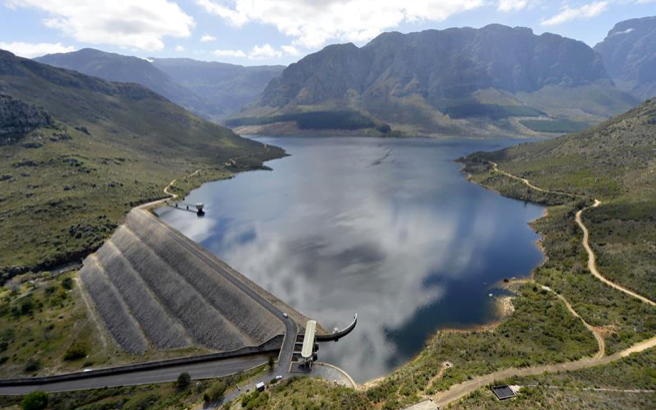Last week, the Berg River Dam reached full capacity and then some for the first time in five years. Although Capetonians were relieved and excited to see the dams so full, many are also concerned with the question of how these overflowing dams are being managed and how we could be storing more of the water we are receiving rather than letting it go to waste.
Expectations are that the Cape’s overall dam levels will reach the 80% mark by November this year, a far cry from the 34% mark they sat at in 2017.
Many have suggested that another, larger storage dam be built in the Cape, but The University of Cape Town recently shed some light on the challenges the province could face when it comes to this option.
A recent UCT article outlined the difficulties that are preventing the province from adding another dam, some being the complex water environments, abstraction of water and maintenance of aquatic life.
The Berg River Dam first became part of the water demand management strategy when it was completed in 2008 and it was originally approved on the condition that the City reduce its water demand by 20% by 2020.
An environmental impact assessment done after the completion of the dam stated that it must ensure sufficient flow to service the ecological reserve it connects to. This would require careful management of how water is released to maintain the important aquatic life, their habitat and the biodiversity that surrounds it. All of this can be particularly demanding for reservoir managers who were previously expected to simply operate the storage system. The Berg River Dam’s operating systems required water releases that matched the natural inflows and flood events of the water around it.
The operating conditions for the Berg River Dam were progressive in the sense that it was required to release low flows and high flows that coincided with natural inflows and natural flood events. That might seem obvious, but what happens in the event of a drought?
In years of drought the water storage in Berg River Dam had to meet the needs of the population while still continuing to meet the needs of the ecological reserve it lies within – but this was near to impossible. As the flow of water slowed down, the eco system connected with it was inevitably directly affected; the slower flow caused a build-up of nutrients downstream, frequent algae blooms and eutrophication that decreased oxygen concentrations, in turn leading to the death of a number of fish and the loss of biodiversity.
Before the City and those involved in dam projects better understand the effects and impacts of dams on riverine ecological assets of the Cape, there will be no new considerations of a dam being added for more water storage. What the region needs now is more information and data on how Berg River Dam has affected its surrounding environment and what Cape Town can do to better store water in future without it causing damage to delicate ecosystems.
